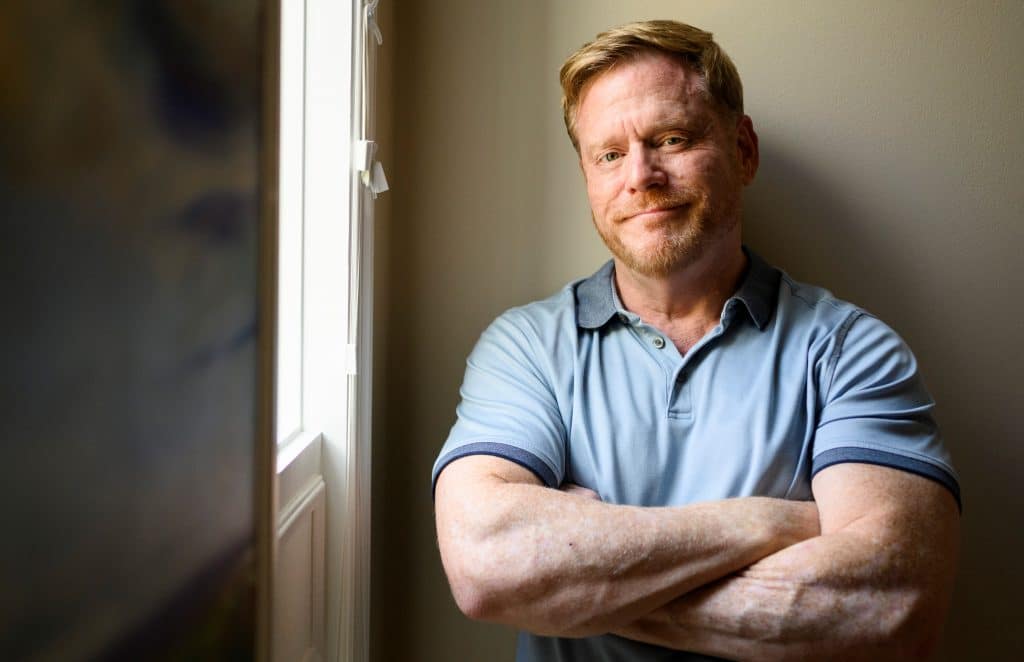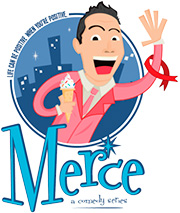My sex life in the 1980s before AIDS came along was glorious. My endurance level was Olympian, my sexual response time was faster than a wink from a cute man, and body fluids went flying like they were shot from cannons.
Today, I am 60 years old. It’s easy to wonder what happened to that drive, but the answer is simple: 35 years. It can be hard to admit, considering our sexually-fixated culture, but I don’t have the drive, the interest, or the filled dance card that I used to have, and frankly, my dear, I don’t give a damn.
That’s a secret we don’t discuss nearly enough. We’re aging and we’re changing. It isn’t a crime to want sex less often. And, while it’s easy to blame my sexual insecurities on all those gay hookup apps and shirtless selfies, the fact is gay men didn’t invent a society in which sexual allure equates to social status. Just ask the parents of any teenaged girl.
As people living with HIV, our relationship with sex is complicated. When HIV arrived, it turned sex into something dangerous, sickly, and even criminal. We became walking vectors of disease to be shunned and dismissed. The very idea that we might pursue a satisfying sex life was viewed as ludicrous.
That kind of withering judgment sticks with a person. That’s trauma. It’s one thing to become an empowered patient, or to stand up for your rights as a person living with HIV. It’s quite another to come to terms with your body—and your bodily fluids—as something with the potential to kill people. Just imagine the ecstasy of orgasm with a sexual partner while, in that same precise moment, being scared to death you’ll spill something in the wrong place and hurt them.
If you lived through the first decades of HIV/AIDS, you know what I mean.
The relatively recent science of “undetectable equals untransmittable” (U=U) has become a kind of sexual revolution for people living with HIV/AIDS—we don’t transmit HIV to sexual partners if we’re virally suppressed!—leading to a sexual reawakening among us, not to mention an avalanche of workshops and studies on the concept of sexual pleasure among people living with HIV. That focus was unthinkable only a few years ago.
Alas, timing is everything. We got this fabulous news about posing no risk to our sex partners around the time that most aging survivors were entering late-middle-age. Just when we got the “all clear” signal, our own interest in sex was already beginning to wane.
It’s bemusing to hear stories and read articles about all those happy, horny people living with HIV out there who are U=U-ing their brains out like it’s spring break in Fort Lauderdale. I’m happy for them, really. I bet most of them are younger than me.
My sex life with my husband has gone from three nights a week a decade ago to a lone date night on Saturday—unless there’s a new episode of something we’re binge watching. Then we might put the big event on hold a bit longer. (I know. I have a husband and he’s a sure thing, and he’s terribly underutilized. We’re okay with that.)
I might sometimes miss my sex life as it once was—it was adventurous and fun and terribly exhausting—but life still holds plenty of surprises. Aging is mysterious and freeing and terrifying. Hang on.
For similar feelings of emotional security and contentment—and for those of us who are without a regular sex partner—I have learned to lean on my friends for emotional support. I used to be too trapped in my masculine armor to tell the people close to me that I love them. Not anymore. I hug my friends, especially when it’s been a while (lord almighty, we all have some catching up to do).
Older folks living with HIV are entering a phase of life in which we discover profound pleasures that are not centered on sex, while the brains of our younger friends are too hormonally addled to notice them.
Good for us. Good for them. If they are incredibly lucky, they will live long enough to discover these secrets for themselves.
Mark
(As it appeared in the May/June 2021 issue of Positively Aware Magazine.)








